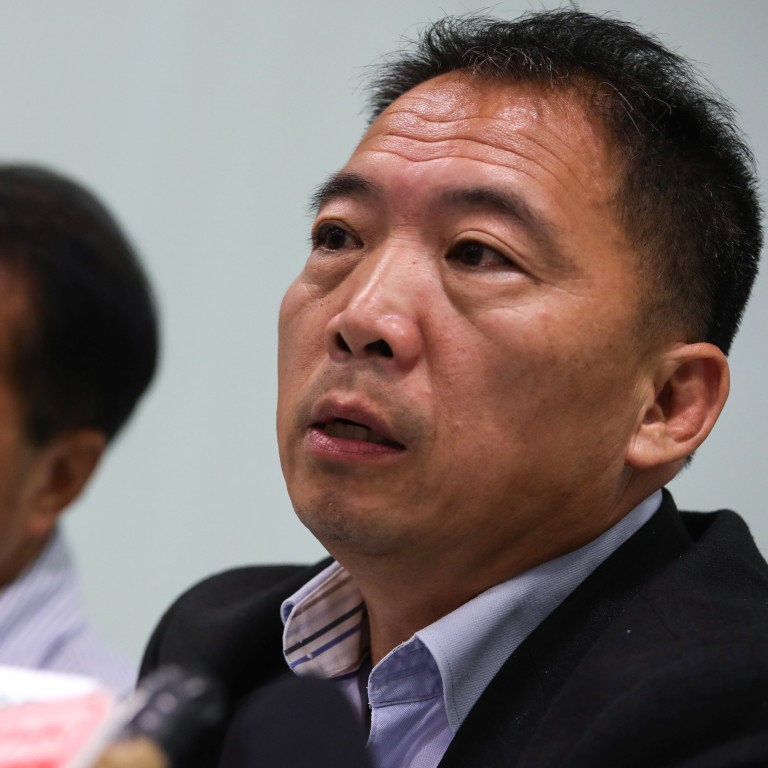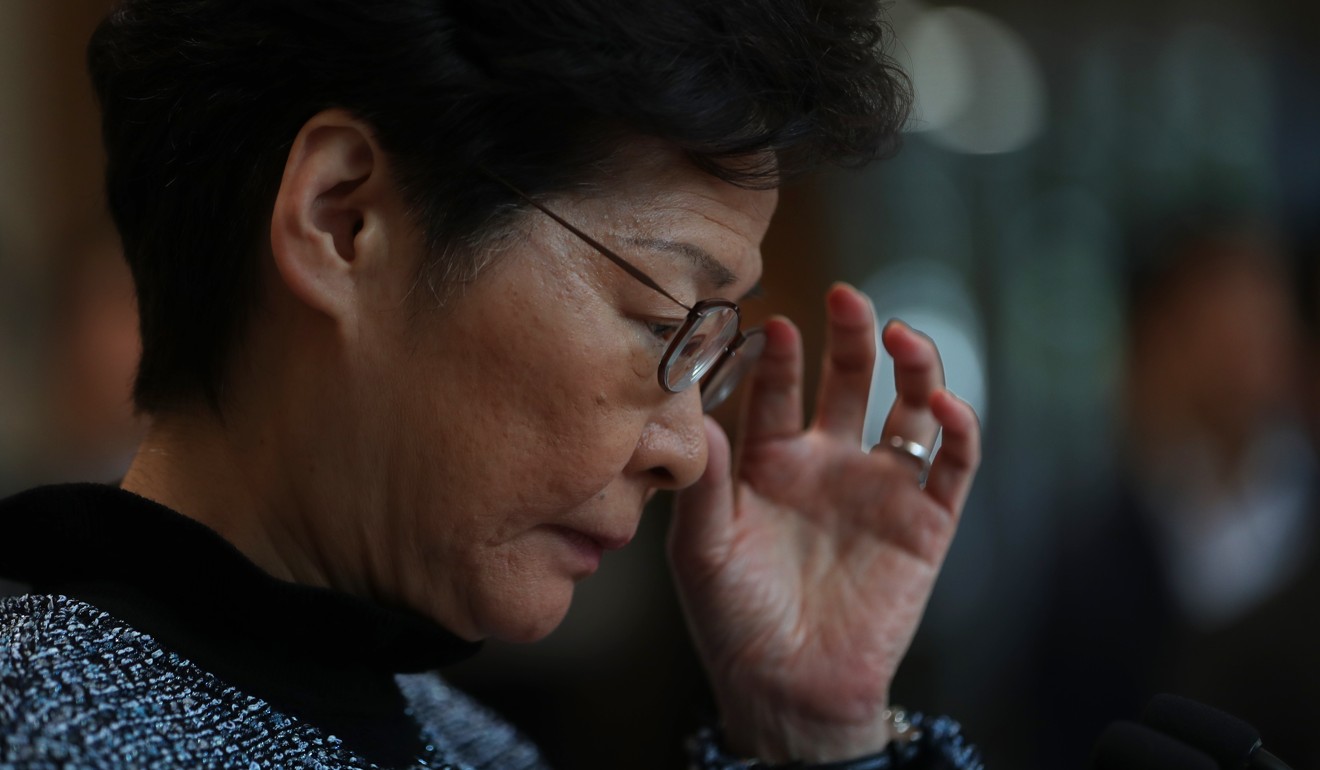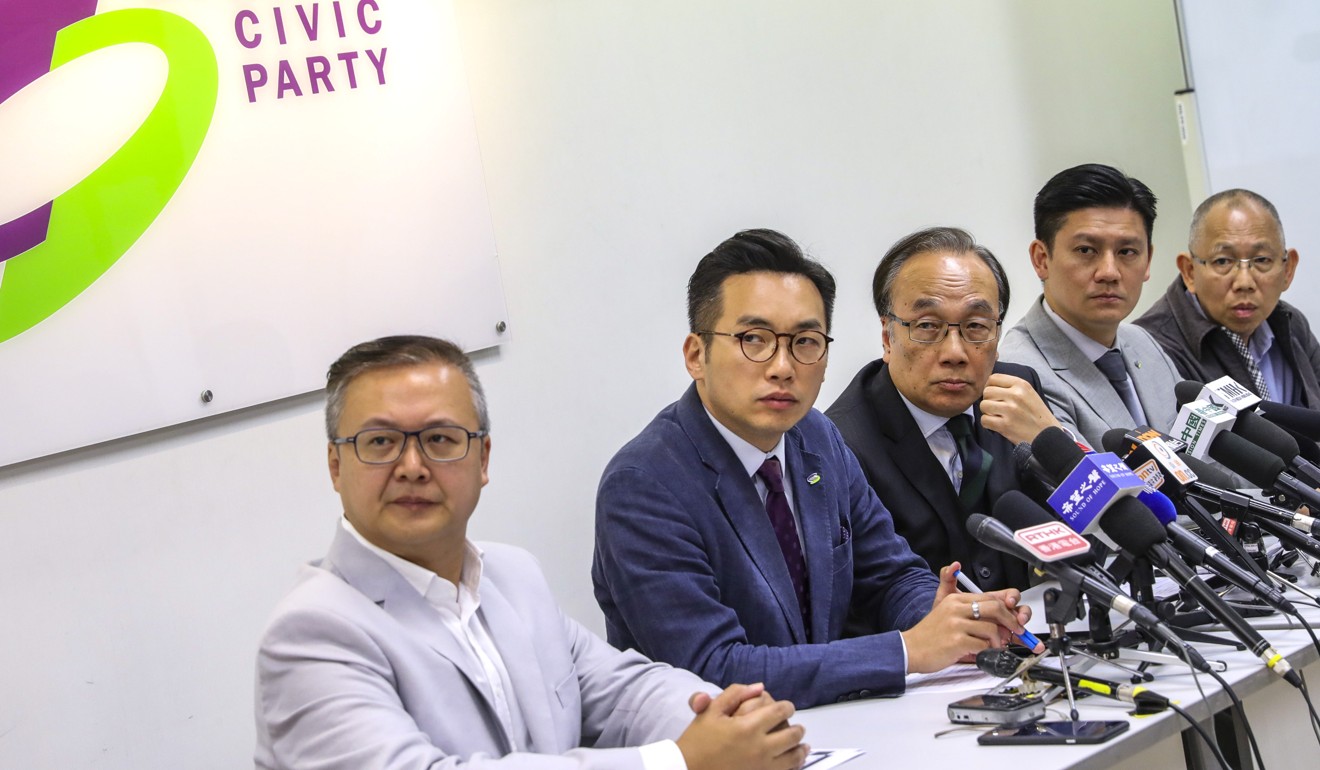
Hong Kong’s pro-democracy bloc vows to turn screw on government after district council poll wins
- Leaders of major opposition parties call for high-level resignations, and for officials to engage with protest movement’s demands
- They also vow to look to the future and work on livelihood issues, to avoid repeating losses of 2007
Leaders of Hong Kong’s pro-democracy bloc warned on Monday they would use the group’s landslide victory in local elections to put pressure on the government to accede to the demands of a protest movement which has gripped the city for nearly six months.
They also vowed to look to the future and work on livelihood issues, to avoid a repeat of losses suffered in 2007.
The Democratic Party more than doubled its seat count from 43 to 91 on Sunday, dislodging the pro-Beijing Democratic Alliance for Betterment and Progress of Hong Kong as the city’s biggest party at the local level.
It urged city leader Carrie Lam Cheng Yuet-ngor to step down and respect the five demands of the anti-government protesters. The demands include an independent inquiry into allegations of police brutality and amnesty for arrested demonstrators.
Identity politics reigns over community issues in district elections: analysts
“The results are beyond candidates’ personal effort, being part of the movement from all the protesters; all the people being hurt and arrested. We have to bear in mind that that’s the basis of the support,” party chairman Wu Chi-wai said.
“We have to use all our efforts so the five demands have to be met in the near future.”
Wu added that “any responsible government must respond to the calls of the public, including a reshuffle in the administration, and Carrie Lam must step down”. He said the government ignoring the five demands could cause residents to lose faith in peaceful means of political expression, leading to escalated confrontations.
He urged Beijing to respect Hongkongers’ democratic aspirations and relaunch discussions on electoral reform.

The bloc now dominates 17 out of 18 districts, having dealt the pro-establishment its most serious blow ever and unseating veteran councillors and legislators. The only council held by the pro-establishment camp was in Islands district, where eight seats on the 18-member body are handed automatically to pro-establishment rural chiefs.
Top of the pan-democrats’ agenda was the siege at Polytechnic University, where a dwindling number of students have been blockaded by police for more than a week. Members planned to head to the campus and “save” the protesters inside.
Another pro-democracy party, the Civic Party, is now the second most represented group on district councils, having captured 32 seats.
It also warned that Sunday’s results paved the way for the last opportunity for the local and central governments to resolve the impasse.
“The voice coming from the ballot box is loud and clear: we want Carrie Lam to withdraw the police from PolyU ... we want the current administration to consider resignation, from the top down to all politically accountable secretaries and Executive Council members,” party chairman and former lawmaker Alan Leong Ka-kit said.
Asked whether the party would enter talks with Beijing over electoral reform, Leong said it would “engage in a dialogue with anybody to maintain Hong Kong ... to sustain our core values such as human rights, freedom, the rule of law, and our way of life”.
Wu echoed the support for the PolyU protesters, saying: “We hope the government can end the police’s siege in the area, and we can seek a peaceful resolution to the problem.”
After their victory, pan-democrats were already eyeing the long term.
The voice coming from the ballot box is loud and clear: we want Carrie Lam to withdraw the police from PolyU ... we want the current administration to consider resignation, from the top down to all politically accountable secretaries and Executive Council members
Wu and another veteran politician Lee Wing-tat said they needed to avoid a setback similar to that of the 2007 district council elections, which reversed the gains of four years earlier.
The success of 2003 was, like that of this year, powered in part by outcry over a government legal change. In that case it was national security legislation, while the current protest crisis was sparked by a bill, now suspended, which would have allowed transfers of fugitives to mainland China.
Wu, a district councillor of 20 years, said his grouping was mindful not to take voters for granted, and would use district councils as platforms to improve livelihood conditions.

But the camp would also use the consultative bodies to political ends, and put pressure on the administration, much as its rival bloc did previously, he said.
“If all 18 district councils in the future all pass a resolution to call for the inquiry [into alleged police brutality], will the government attach the same gravity to that? If so, then the district councils could really act as a bridge between the people and the establishment,” Wu said.
The Civic Party also warned of history repeating itself, and said the camp must reach out to government supporters despite the polarised climate.
“As a responsible political party, we have to understand why they would have supported such an administration … They must have a reason. If there are things to be done, then do them,” Leong said.
The election results also mean the camp its likely to control about a third of the election committee which will pick the next chief executive in 2022. But Wu downplayed the importance of that development, saying the bloc would only use it as a bargaining chip to get democratic reform from Beijing.
ends

